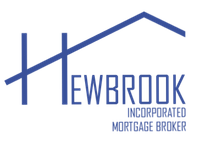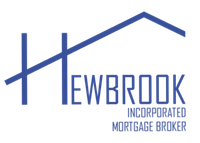FAQs
What’s the difference between pre-approval and pre-authorization?
The pre-approval process is much more in depth than pre-qualification. For pre-qualification, the loan officer asks you a few questions and provides you with a pre-qualifing letter. Pre-approval includes all the steps of a full approval, except for the appraisal and title search. Pre-approval can put you in a better negotiating position, much like a cash buyer.
What is your best interest rate?
This is one of the most frequently asked questions. As rates change frequently and every borrowing situation is different we require certain information before this can be answered accurately. (What is the money being used for? What kind of term are you looking for? What privileges' do you require? Etc.) It pays to consult a Mortgage Broker to determine what rate you would be eligible for.
How much can I afford?
This is a very popular question, One that new home buyers especially want to know. A general rule of thumb is 35% gross debt service (principal, interest & taxes) and 42% total debt services. This is only a rule of thumb and every situation is different. Speak to a professional to get the right answer.
How is Gross Debt Service calculated?
GDS refers to the percentage of your household's gross monthly income that goes toward your housing payments: mortgage (principal+ interest), property taxes, heating and if applicable, 50% of condo fees. Lenders use your GDS and TDS (total debt service) ratios to assess your mortgage application and to determine how much to loan you and what interest rates apply. Most lenders require a GDS ratio of no greater than 39%.
How is Total Debt Service calculated?
TDS refers to the percentage of your household's gross monthly income that goes toward housing costs (i.e., mortgage, property taxes, heating, etc.) plus your other debts and financing (i.e., car loans. credit cards. etc.). Banks use this calculation, along with your gross debt service ratio, when assessing your mortgage application. Most lenders require a TDS of no greater than 44%.
How long will it take?
This also can be dependent on the amount, reason, client’s credit, etc. The answer is anywhere from a few hours to a few weeks.
What is a Fixed Rate Mortgage?
With a fixed rate mortgage, the interest rate on your home loan is set for the term of the mortgage. Fixed rate mortgages offer the peace of mind of consistency, you’ll know exactly how much you'll owe at the end of each mortgage term.
What is a Variable Rate Mortgage?
Also known as a floating rate mortgage or adjustable-rate mortgage, this type of mortgage has an interest rate that fluctuates with the prime lending rate. The main benefit of variable rate mortgages is lower interest rates. but in return, homeowners take on risk if the prime rate goes up, a larger chunk of your mortgage payment will go toward the interest, not paying down your principal. The result: your mortgage could take longer to pay off and cost you more in interest.


